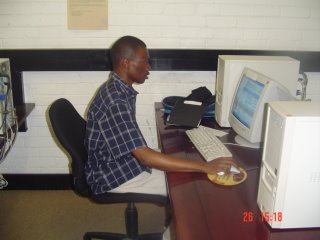Ghadija Vallie: a heart without borders
The session we had with Ghadija Vallie brought me back to the African wisdom I used to hear from my grandmother, my mother and in some old traditional songs. I felt like drinking at a source of potable water falling from the mountains of my village I visited years ago. Her speech was clean, pure, deep and inspiring true love.
The predominant color on her dress was green, testifying expansion and change, and she said it: change is constant. I love you mummy. The session was among the shortest we had so far but full of wisdom. No PowerPoint slides but simply wise words and advices (please do not misinterpret me, I am not against technology).
In this individualistic society we are living in, with extensive promotion of the ego, the ‘moi’, she came with a revolutionary thought: ‘I am the community, we are the community…an injury to one is an injury to all’.
Whatever the circumstances, I will always ask my self, what is the contribution I make to my community? Key for a valuable contribution: humility, commitment and passion.
She traveled from Cape Town just to share that with us. It was great and comforting, raising hope for the future. Thanks a million to you Ghadija Vallie. I will always remember of you.

